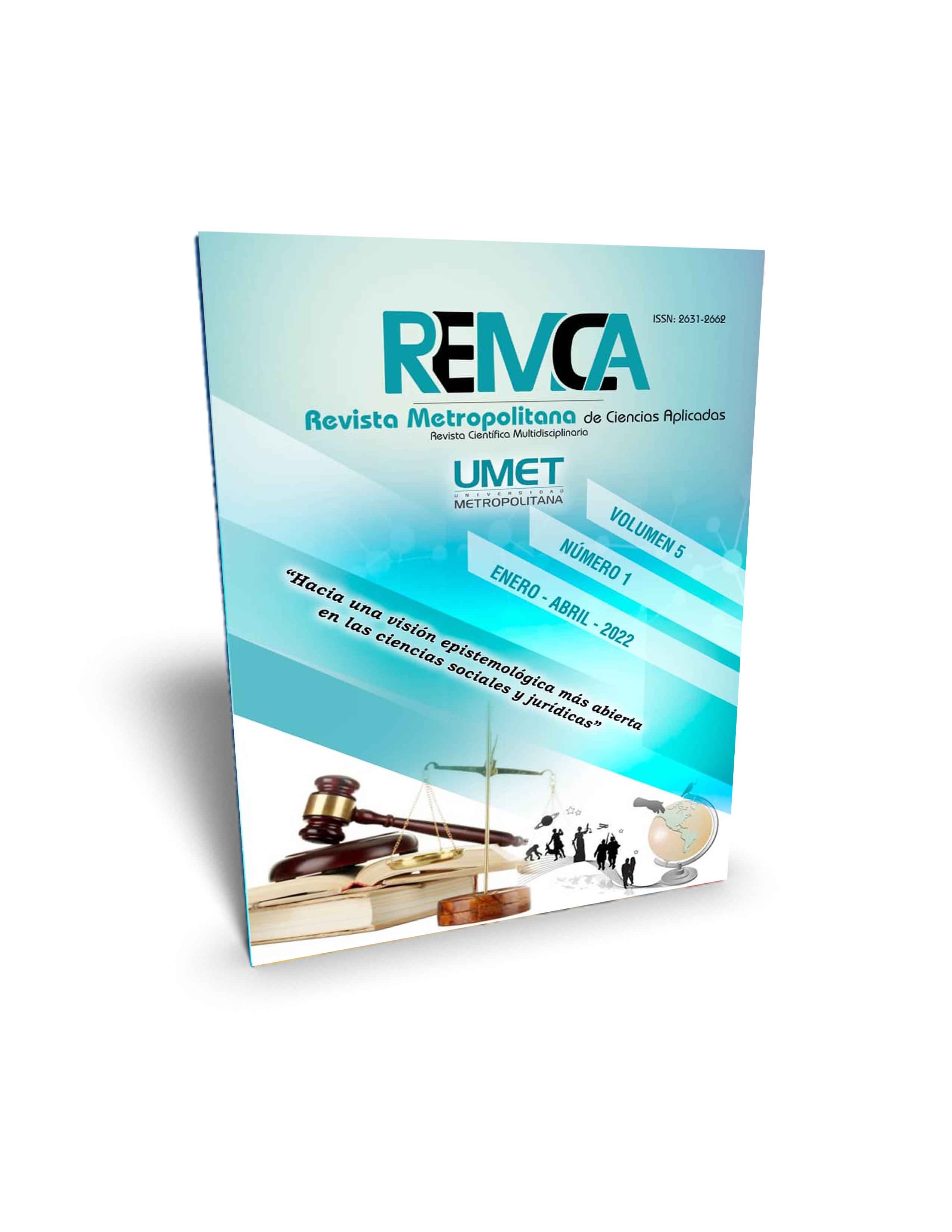The emergent special contract, its origin and application in Ecuador
DOI:
https://doi.org/10.62452/p62cg630Keywords:
Employment, special emergency contract, health emergency, job stabilityAbstract
The purpose of this article is to determine the impact of the legal figure of the special emerging contract, provided for in Article 19 of the Organic Law of Humanitarian Support to Combat the Health Crisis derived from COVID-19, on labor relations in Ecuador. Such contractual figure was created as a result of the current economic crisis in the country, which was aggravated by the COVID-19 pandemic, which hit not only the physical and psychological health of citizens, but also the economy nationwide. In this situation, the employers, in this case, of the private sector, adopted agreements with the workers, in order to modify, make more flexible or even terminate the labor relationship, thus the figure of the Special Emerging Contract arises, whose legal concession and practical application, after observation, can be questioned in several ways. The present work is supported within an eminently qualitative investigation relying on the methods: logical historical and synthetic analytical.
Downloads
References
Chicano Tejada, E. (2016). Contratación laboral. UF0341. IC Editorial.
Ecuador. Asamblea Nacional Constituyente. (2008). Constitución de la República del Ecuador. Edijur.
Ecuador. Asamblea Nacional. (2020). Ley Orgánica de Apoyo Humanitario. Registro Oficial Suplemento 229. https://www.securitydata.net.ec/wp-content/downloads/Normativas/leyapoyo_humanitario.pdf
Ecuador. Defensoría del Pueblo. (2020). La Defensoría del Pueblo reitera su preocupación por la promulgación inminente de la Ley de Apoyo Humanitario y alerta sobre la propuesta presidencial que dejaría en indefensión a las y los trabajadores del país. http://repositorio.dpe.gob.ec/bitstream/39000/2656/1/AD-DPE-062-2020.pdf
Ecuador. Ministerio de Defensa Nacional. (2020). Decreto 1017. Suplemento del Registro Oficial No. 163. https://www.defensa.gob.ec/wp-content/uploads/downloads/2020/03/Decreto_presidencial_No_1017_17-Marzo-2020.pdf
Ecuador. Secretaría General de Comunicación de la Presidencia. (2020). Gobierno del Encuentro, se registra el primer caso de coronavirus en Ecuador. https://www.comunicacion.gob.ec/se-registra-el-primer-caso-de-coronavirus-en-ecuador/
Jervis, O. (1967). La Peste en el Ecuador de 1908 a 1965. IRIS PAHO.
Organización Panamericana de la Salud. (2020). Enfermedad por el Coronavirus. OMS. https://www.who.int/es/news/item/30-01-2020-statement-on-the-second-meeting-of-the-international-health-regulations-(2005)-emergency-committee-regarding-the-outbreak-of-novel-coronavirus-(2019-ncov).
Páez, A. (2019). Principios del Derecho del Trabajo, Capitulo III Principios del Derecho del Trabajo de Primera Generación. Editora Jurídica Cevallos.
Pérez, J. (2017). Evolución de la relación laboral y su futuro en la sociedad ecuatoriana. Revista Caribeña de Ciencias Sociales. https://www.eumed.net/rev/caribe/2017/04/relacion-laboral-ecuador.html
Robalino, M. (2005). El Contrato de Trabajo. https://derechoecuador.com/el-contrato-de-trabajo/
Soria, W. (2019). El Ius Variandi como potestad facultativa del empleador y los criterios de razonabilidad en los trabajadores de las empresas del sector privado. (Trabjo de titulación). Universidad Andina del Cusco.
Tamayo, N. (2018). El Telégrafo de Guayaquil y los hechos del 15 de noviembre de 1922: La Prensa como Actor Político en Ecuador. Americanía: Revista De Estudios Latinoamericanos, (7), 137–158.
Downloads
Published
Issue
Section
License
Copyright (c) 2022 Diana Patricia García Lemos, Alberto Mauricio Pangol Lascano (Autor/a)

This work is licensed under a Creative Commons Attribution-NonCommercial-ShareAlike 4.0 International License.
Authors who publish in Revista Metropolitana de Ciencias Aplicadas (REMCA), agree to the following terms:
1. Copyright
Authors retain unrestricted copyright to their work. Authors grant the journal the right of first publication. To this end, they assign the journal non-exclusive exploitation rights (reproduction, distribution, public communication, and transformation). Authors may enter into additional agreements for the non-exclusive distribution of the version of the work published in the journal, provided that acknowledgment of its initial publication in this journal is given.
© The authors.
2. License
The articles are published in the journal under the Creative Commons Attribution-NonCommercial-ShareAlike 4.0 International License (CC BY-NC-SA 4.0). The terms can be found at: https://creativecommons.org/licenses/by-nc-sa/4.0/deed.en
This license allows:
- Sharing: Copying and redistributing the material in any medium or format.
- Adapting: Remixing, transforming, and building upon the material.
Under the following terms:
- Attribution: You must give appropriate credit, provide a link to the license, and indicate if any changes were made. You may do this in any reasonable manner, but not in any way that suggests the licensor endorses or sponsors your use.
- NonCommercial: You may not use the material for commercial purposes.
- ShareAlike: If you remix, transform, or build upon the material, you must distribute your creation under the same license as the original work.
There are no additional restrictions. You may not apply legal terms or technological measures that legally restrict others from doing anything the license permits.




